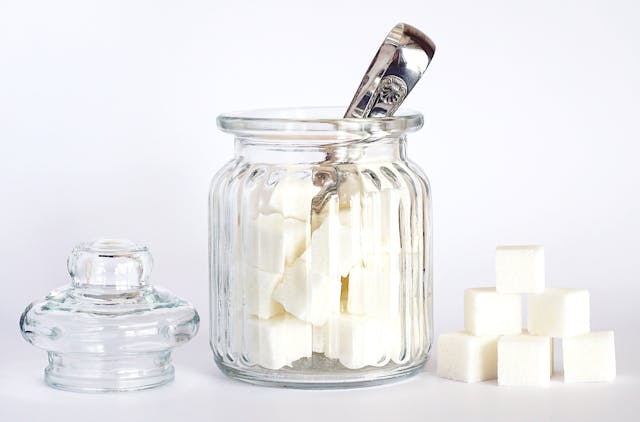The Truth About Sugar: How Much is Too Much?
Sugar is everywhere. It sweetens our coffee, flavors our desserts, and sneaks its way into foods we’d never suspect, like salad dressings and bread. It's no wonder most of us have a bit of a love-hate relationship with this sweet substance. But how much sugar is too much? Are we consuming more than our bodies can handle? Let’s dive in and uncover the truth about sugar.

Understanding Sugar: Natural vs. Added
First, let’s clear up a common confusion. Not all sugar is created equal. Naturally occurring sugars, like those in fruits, vegetables, and dairy products, come with vitamins, minerals, and fiber that slow their absorption and make them healthier options. Added sugars, on the other hand, are what manufacturers put into foods and drinks to enhance flavor—think table sugar, syrups, and the sugars hidden in processed foods.
Added sugars are the main concern when it comes to health risks. They're linked to issues like weight gain, type 2 diabetes, heart disease, and even mood swings. The World Health Organization (WHO) recommends that added sugars make up less than 10% of your daily caloric intake, ideally under 5%. For an average adult, this translates to about 25–50 grams per day—roughly 6–12 teaspoons.
So, How Much Are We Actually Consuming?
Brace yourself. The average person consumes around 17 teaspoons of added sugar a day—more than double the recommended amount. This doesn’t even include naturally occurring sugars.
Where is all this sugar coming from? While candy and desserts are obvious culprits, sugary beverages like soda, flavored coffees, and energy drinks are some of the biggest offenders. A single 12-ounce soda can contain about 10 teaspoons of sugar. Sneaky, right? Even so-called “healthy” foods like granola bars, flavored yogurts, and smoothies can pack more sugar than a donut.
What Happens When You Overdo It?
Consuming too much sugar doesn’t just add inches to your waistline. It can wreak havoc on your entire body.
-
Energy Highs and Crashes: Ever feel amazing after a sugary snack, only to crash an hour later? Sugar gives you a quick energy boost, but it’s short-lived, leaving you tired and craving more.
-
Weight Gain: Excess sugar means extra calories, which can lead to weight gain, especially when sugary foods replace healthier options.
-
Risk of Chronic Diseases: High sugar intake is linked to serious health problems like heart disease, fatty liver disease, and insulin resistance, which can lead to type 2 diabetes.
-
Skin Problems: Sugar can accelerate aging and cause breakouts by triggering inflammation.
Finding Balance: Tips for Cutting Back
Reducing sugar doesn’t mean eliminating all sweetness from your life. It’s about finding balance and making smarter choices. Here are some tips to help:
-
Read Labels: Look out for sneaky names like high-fructose corn syrup, dextrose, and molasses. Check the “added sugars” section on nutrition labels.
-
Swap Sugary Drinks: Replace sodas and sugary coffees with water, unsweetened tea, or sparkling water with a splash of lemon.
-
Choose Whole Foods: Opt for fresh fruits, vegetables, and whole grains. These provide natural sweetness along with fiber and nutrients.
-
Cook at Home: Preparing meals and snacks at home allows you to control how much sugar goes in.
-
Retrain Your Taste Buds: Gradually reduce sugar in your coffee or cereal. Over time, you’ll find you don’t need as much to satisfy your cravings.

Is Sugar All Bad?
Not at all! Sugar in moderation can be part of a healthy diet. Enjoying a slice of cake on your birthday or a scoop of ice cream on a hot day isn’t going to ruin your health. The key is to make these indulgences occasional, not everyday habits.
Your body also needs glucose, a type of sugar, for energy. The problem arises when we consume far more than our body requires, tipping the scale toward negative health effects.
The Sweet Spot: Finding Your Limit
The “right” amount of sugar varies depending on your lifestyle, health goals, and individual tolerance. But most of us can benefit from cutting back. Pay attention to how your body feels—do you notice more energy, fewer cravings, or better focus when you reduce sugar? These can be signs that you’ve found your sweet spot.
By being mindful of your sugar intake and making small, sustainable changes, you can enjoy the sweet things in life without sacrificing your health. So go ahead, enjoy that cookie—but maybe skip the soda. Your body will thank you!












